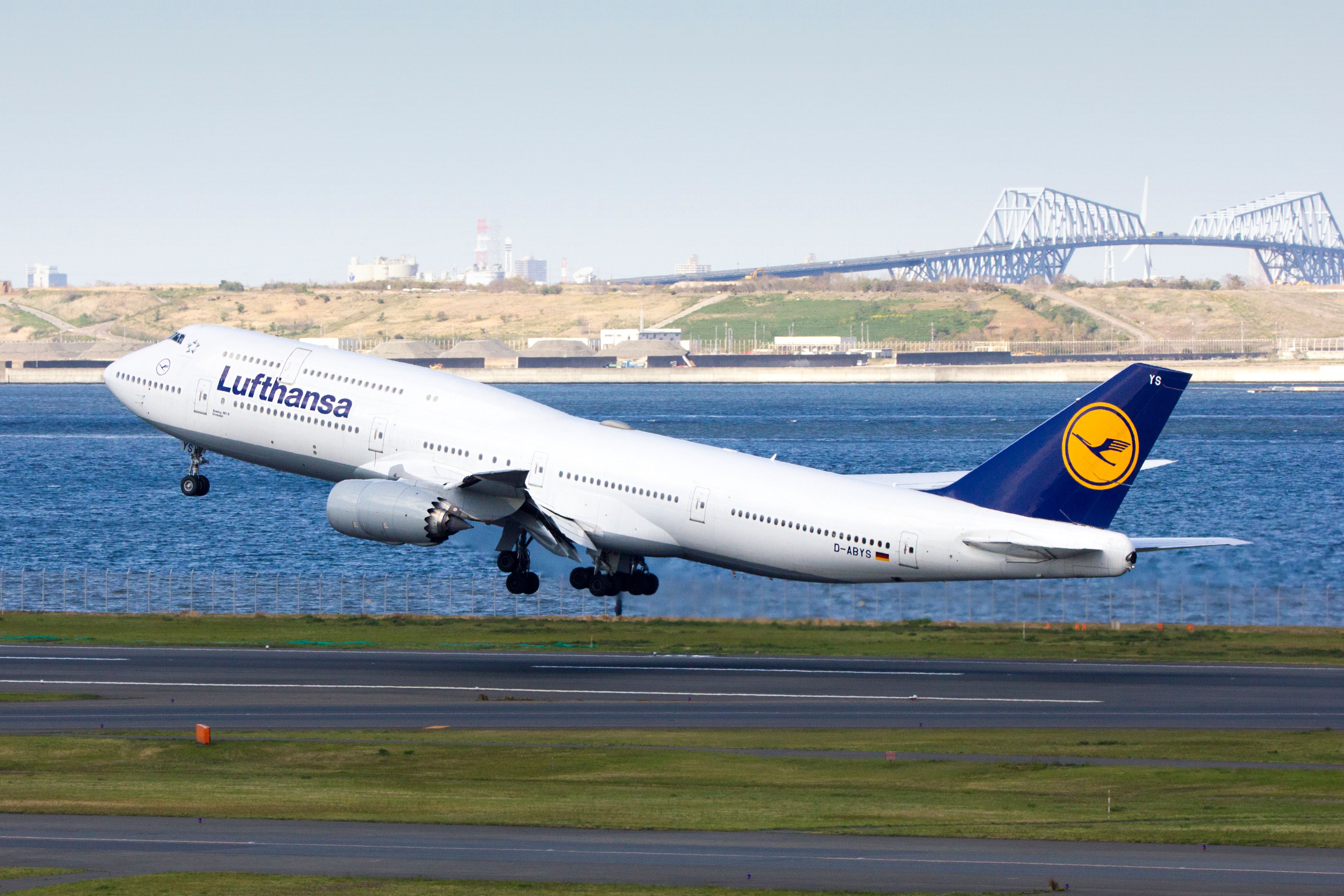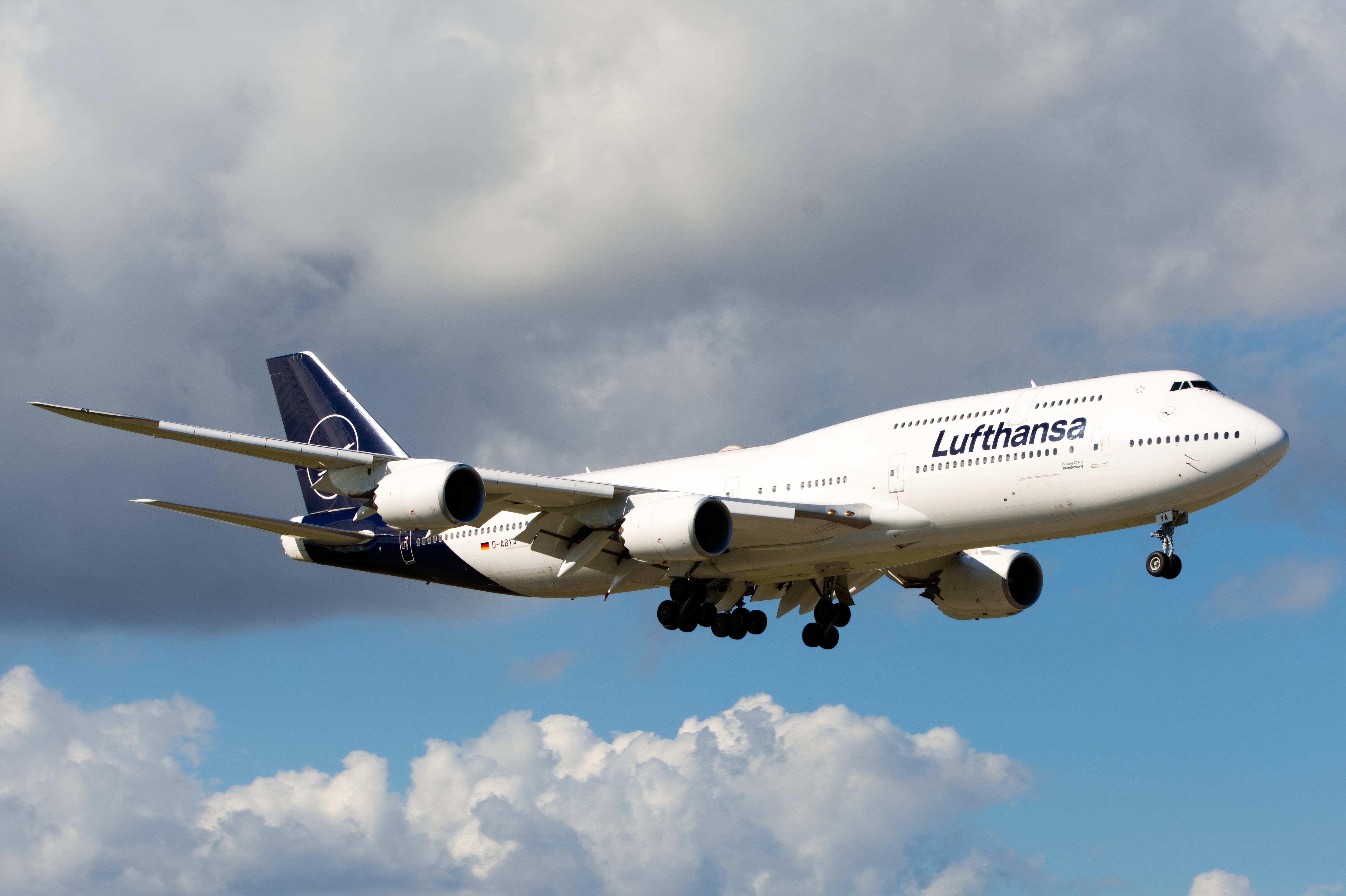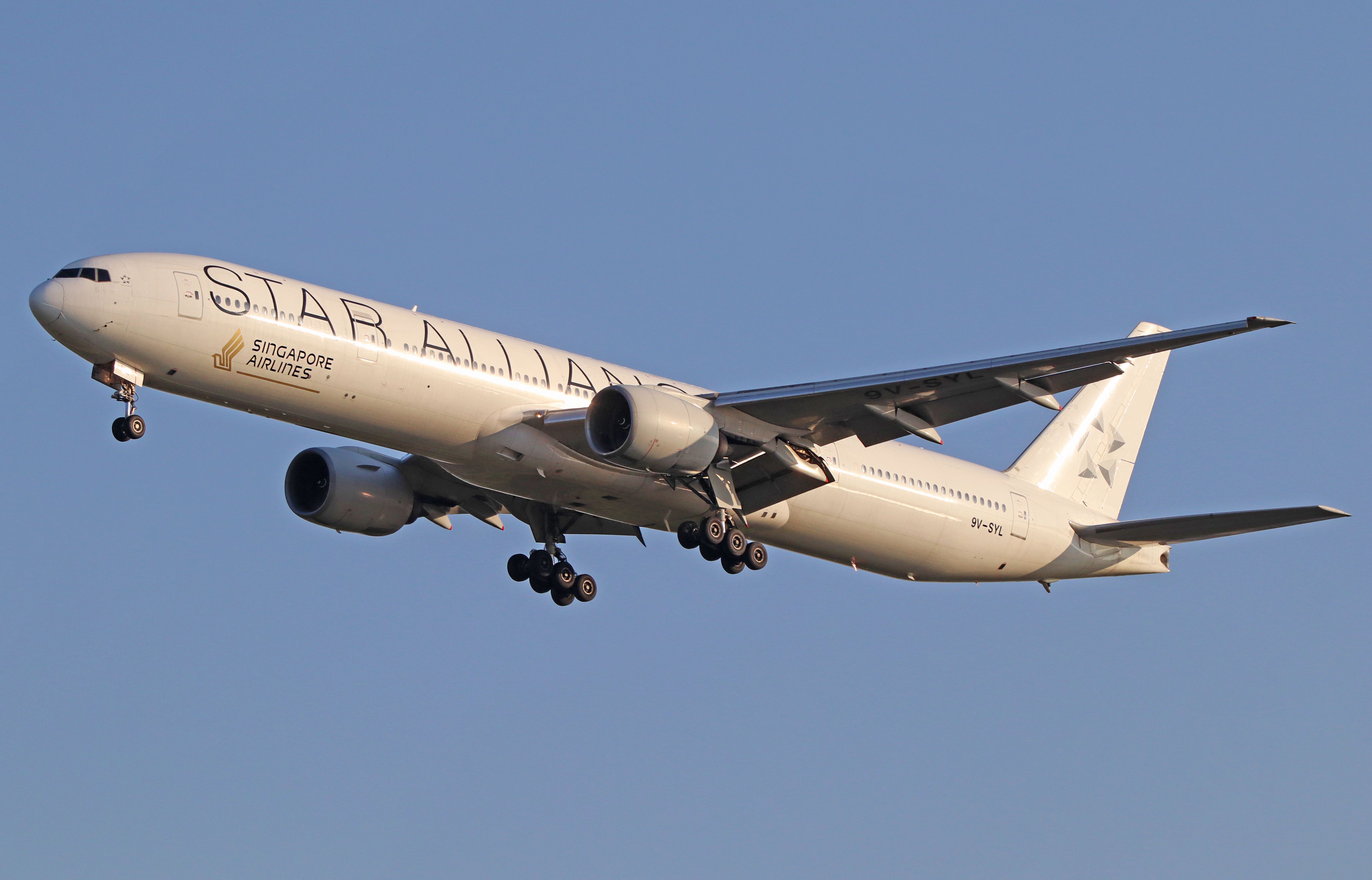5 Passengers & 6 Crew Injured During Severe Turbulence On Lufthansa Boeing 747 Flight From Buenos Aires To Frankfurt
A  Lufthansa flight flying back from Buenos Aires, Argentina, encountered severe turbulence, with more than ten people receiving medical care after the flight landed in Frankfurt, Germany.
Lufthansa flight flying back from Buenos Aires, Argentina, encountered severe turbulence, with more than ten people receiving medical care after the flight landed in Frankfurt, Germany.
Severe turbulence event
A Lufthansa spokesperson confirmed to Simple Flying that its Boeing 747-8, registered as D-ABYP, encountered severe turbulence when it was operating flight LH511 from Buenos Aires Ezeiza International Airport (EZE) to Frankfurt Airport (FRA) on November 11.
After the flight landed at the German airport on November 12, six crew members and five passengers, who sustained minor injuries, received medical treatment immediately after the 747-8 arrived on German soil.
“Lufthansa’s Special Assistance Team has been providing support to the affected passengers. The safety of the flight was never compromised. Lufthansa regrets any inconvenience caused to the passengers.”
The airline’s representative emphasized that the safety and well-being of its crew members and passengers always remain Lufthansa’s main priority.
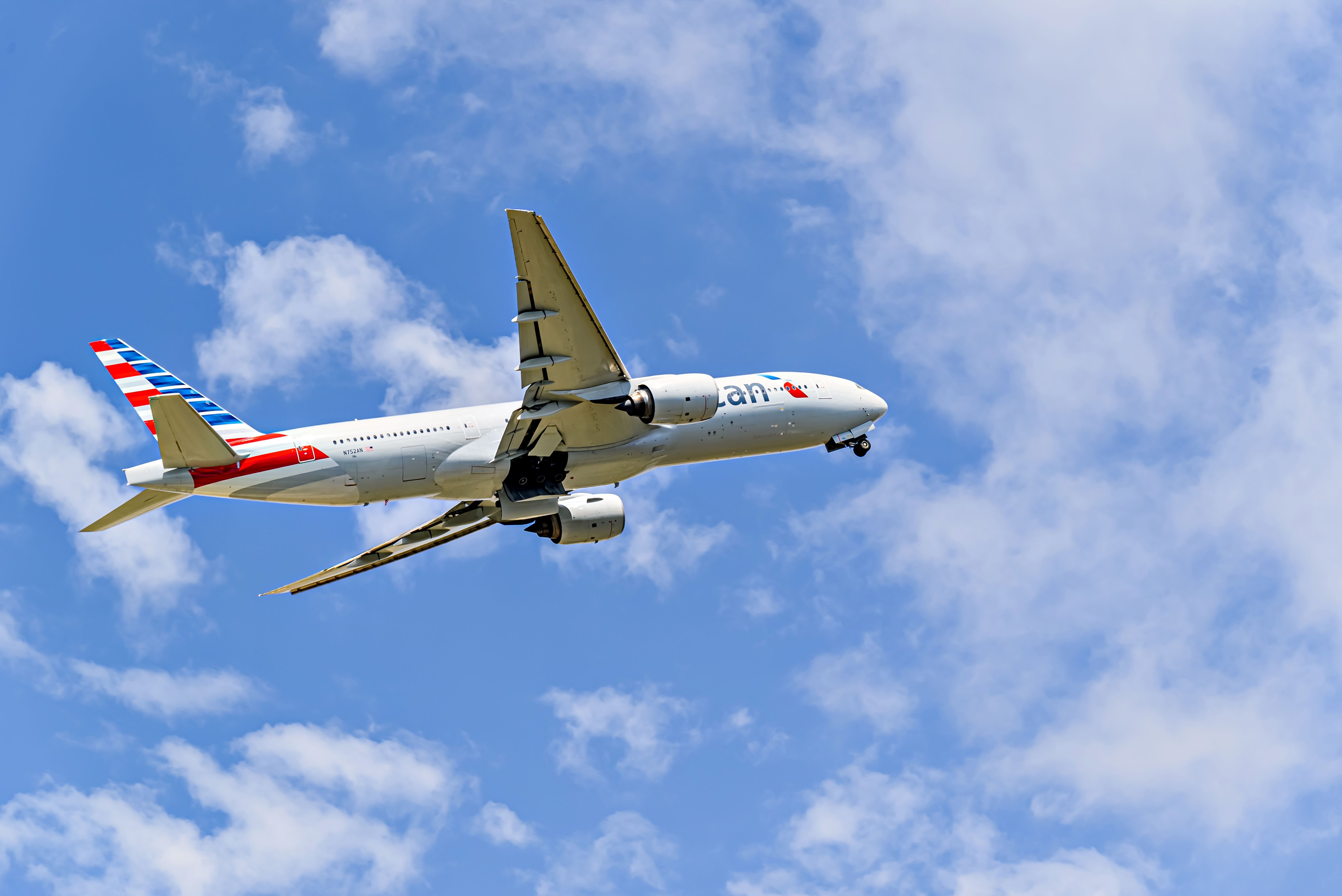
Related
International Aviation Regulators Call For Action To Mitigate Turbulence Accidents
A contingent of member nations is asking the ICAO to encourage the international sharing of turbulence data to help plot flight paths.
Resuming services
According to Flightradar24 data, the double-decker aircraft, which landed at  Frankfurt Airport (FRA) at 10:53 local time (UTC +1) on November 12, has departed Frankfurt on a flight to San Francisco International Airport (SFO) at 10:40 on November 13.
Frankfurt Airport (FRA) at 10:53 local time (UTC +1) on November 12, has departed Frankfurt on a flight to San Francisco International Airport (SFO) at 10:40 on November 13.
The flight tracking service estimated that the 747-8 would arrive at San Francisco International at 12:33 local time (UTC -8).
Photo: ajuangon | Shutterstock
Lufthansa has a daily flight to Buenos Aires. The German airline increased the number of weekly departures to seven from Frankfurt to the Argentinian capital in April 2023. Data from the aviation analytics company Cirium showed that the route has always been served by the 747-8, at least since November 2014.
In addition to Buenos Aires, Lufthansa has scheduled flights to three other destinations in South America in November, namely Bogota El Dorado International Airport (BOG), Rio de Janeiro/Galeão–Antonio Carlos Jobim International Airport (GIG), and São Paulo/Guarulhos–Governor André Franco Montoro International Airport (GRU).
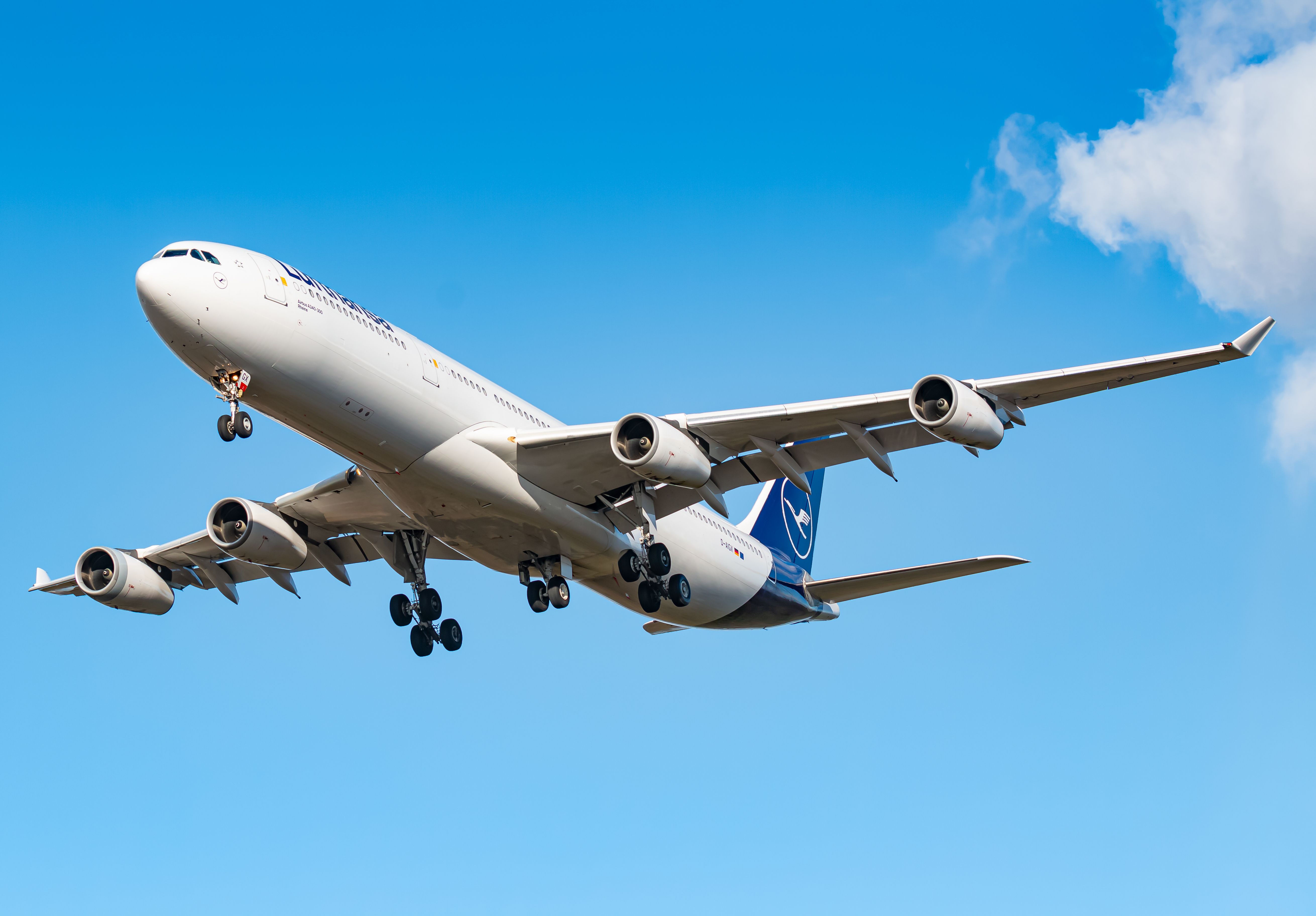
Related
Lufthansa Doubles Flights Between Frankfurt & Rio de Janeiro
The airline is canceling the Munich-Rio de Janeiro route, though.
Severe turbulence events
Nevertheless, over the past several months, there have been several high-profile severe turbulence events, including but not exclusive to flights operated by Air Europa, Air New Zealand, Scoot, United Airlines, and Turkish Airlines.
However, one severe turbulence event involving a Singapore Airlines Boeing 777-300ER resulted in one passenger passing away due to a heart attack they suffered during the incident. Over 100 other passengers had minor or major injuries on flight SQ321 on May 21.
In a preliminary report issued on May 29, the Transport Safety Investigation Bureau of Singapore (TSIB) said that the flight, which departed London Heathrow Airport (LHR) on May 20, overflew an area of “developing convective activity” as it was passing to the south of Myanmar onward to Singapore Changi Airport (SIN) on May 21.
Photo: KITTIKUN YOKSAP | Shutterstock
Subsequently, the aircraft began to vibrate “slightly,” and amidst those vibrations, there was an uncommanded increase in altitude, with the autopilot responding by pitching down the 777-300ER.
Just 19 seconds later, the  Singapore Airlines aircraft suffered rapid changes in vertical acceleration, causing occupants without fastened seat belts to become airborne and fall back down again.
Singapore Airlines aircraft suffered rapid changes in vertical acceleration, causing occupants without fastened seat belts to become airborne and fall back down again.
The 777-300ER, registered as 9V-SWM, has returned to service and has been operating commercial flights since July 27.
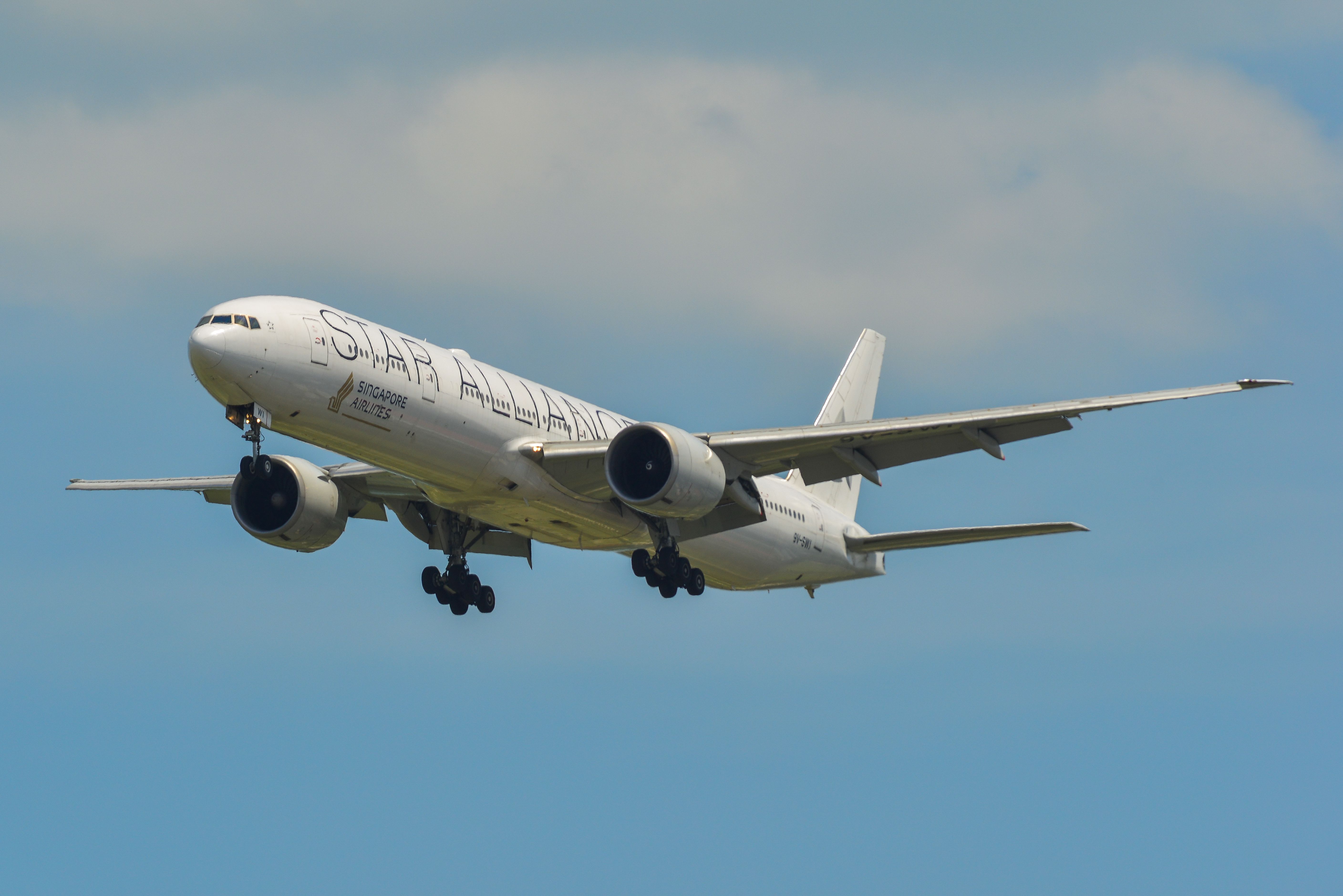
Related
Singapore Airlines FDR Records Show Plane Suffered Rapid G Force Changes In Turbulence
The pilots turned on the seatbelt sign just eight seconds before the aircraft experienced rapid changes in G.



